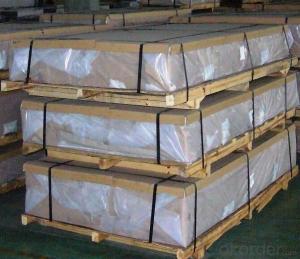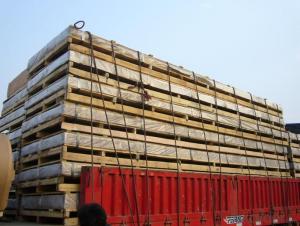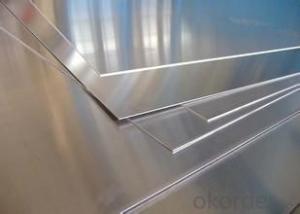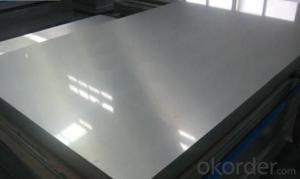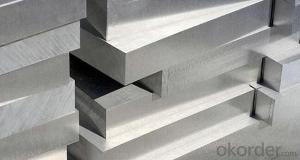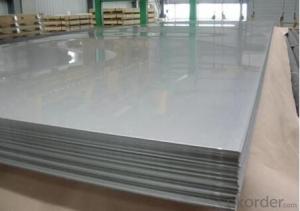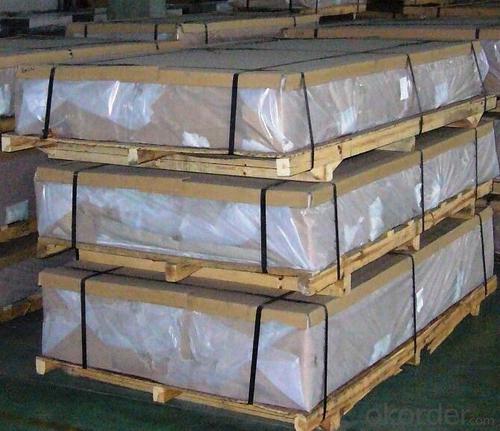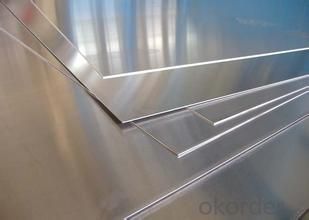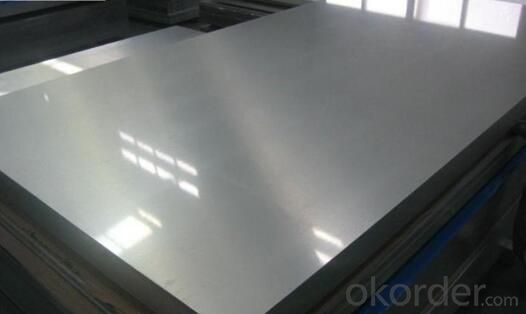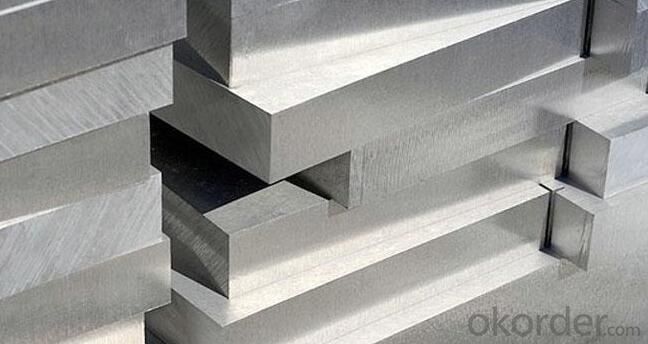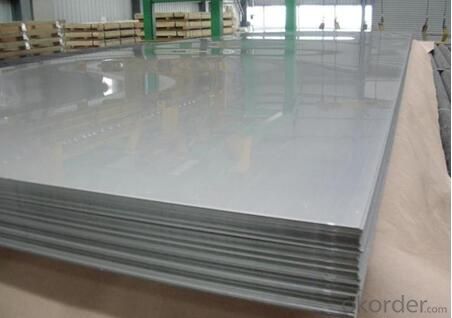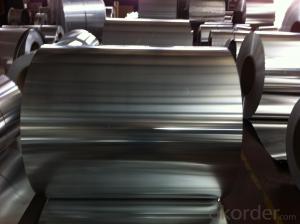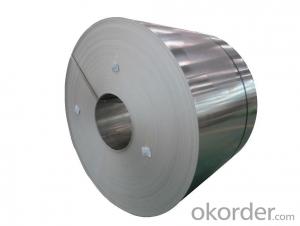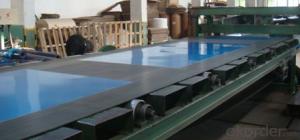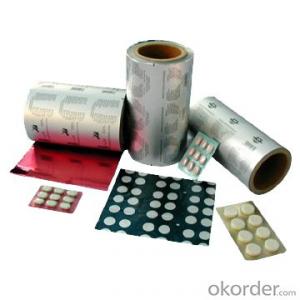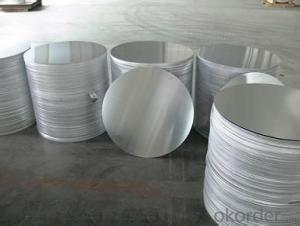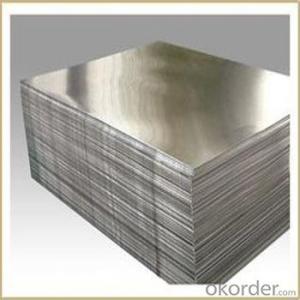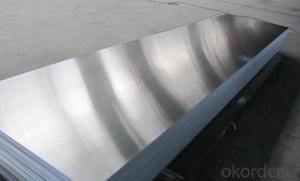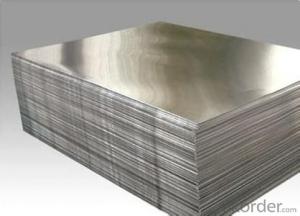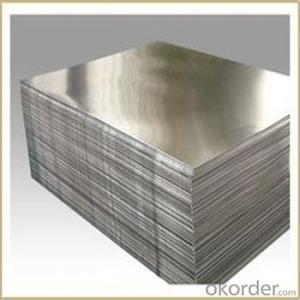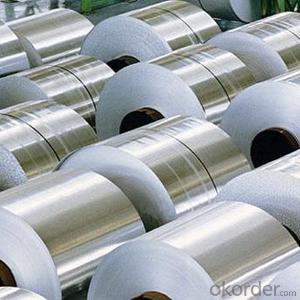Laser Anodized Cold Rolled 3003 Aluminium Sheet with Mill Finished
- Loading Port:
- Shanghai
- Payment Terms:
- TT OR LC
- Min Order Qty:
- 8 m.t.
- Supply Capability:
- 20000 m.t./month
OKorder Service Pledge
OKorder Financial Service
You Might Also Like
Specification
1.General Information
Aluminum sheets is between 0.1 mm and 500mm in thickness and has a wide variety of uses in the construction industry including aluminium siding and roofing. Sheet is also used widely in construction, decoration, transport applications and other various industrial filed, such as automobile body panels, airframes, curtain walls and the hulls of boats etc.
We produces aluminum sheets which meets the highest standards in its own mill while save the cost. Our strong quality control term bring you the most-qualified products. Our aluminum complying with YS/T 429-2000(Chinese Industry Standard),GB/T 3880,EN485,ASTM B209.
The main producing procedure includes the following steps:
Rolling--Annealing--Slitting--Sawing, Cut-To-Length, Shearing
2.Structure ofAluminum Sheets D.C 3XXX Description
Aluminum Sheets D.C 3XXX is cut from aluminum coils 3xxx. Aluminum Sheets D.C 3XXX has great ductility, heat conductivity, anti-corrosion and moisture resistance properties.
Aluminum Sheets D.C 3XXX is widely used for electronics, instruments, lighting decoration, packing industry, house decoration, curtain wall, honeycomb-core panel, sandwich panel, aluminum composite panel and aluminum composite pipes.
3.Main Features of the Aluminum Sheets D.C 3XXX
Superior quality of raw material
Reasonable and stable chemical composition
Accurate tolerance
Goode mechanical property
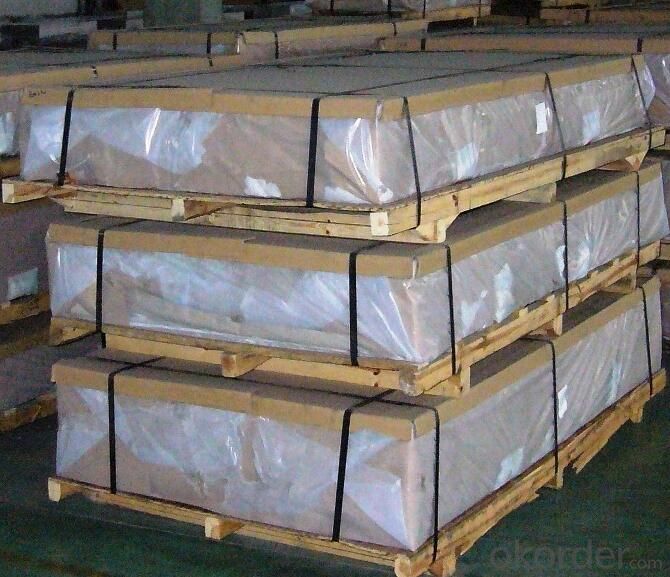
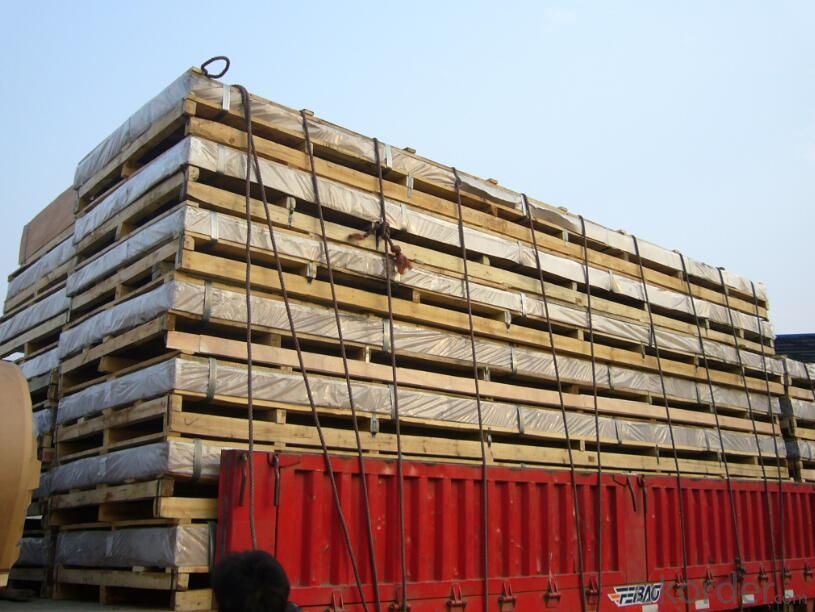
- Q: Is it possible to recycle aluminum sheets multiple times?
- <p>Yes, aluminum sheets can be recycled again and again. The recycling process for aluminum is highly efficient, and it can be recycled indefinitely without losing any quality. This is due to the fact that aluminum retains its properties even after multiple recycling cycles. Each time aluminum is recycled, it can be melted down and reformed into new products, making it a sustainable and environmentally friendly material.</p>
- Q: Are 101 aluminum sheets magnetic?
- No, 101 aluminum sheets are not magnetic as aluminum is a non-magnetic metal.
- Q: Are aluminum sheets suitable for chemical processing applications?
- Yes, aluminum sheets are suitable for chemical processing applications. Aluminum is a versatile and widely used material in various industries, including chemical processing. It possesses excellent corrosion resistance properties, making it highly suitable for applications involving exposure to chemicals and corrosive environments. Aluminum sheets are resistant to many acids and alkalis, including common chemicals such as sulfuric acid, hydrochloric acid, and sodium hydroxide. Aluminum's corrosion resistance is due to the formation of a thin, protective oxide layer on its surface, which acts as a barrier against chemical attacks. This oxide layer can quickly reform if damaged, providing continuous protection to the underlying metal. Furthermore, aluminum is lightweight, has high thermal conductivity, and can be easily formed into different shapes and sizes, making it a preferred choice for various chemical processing equipment and components. In chemical processing applications, aluminum sheets are commonly used for storage tanks, heat exchangers, piping systems, and other equipment that come into contact with chemicals. They can withstand high temperatures and pressures, making them suitable for various processing conditions. Additionally, aluminum is non-toxic, non-magnetic, and has excellent electrical conductivity, which can be advantageous in certain chemical processes. However, it is essential to consider the specific chemical environment and conditions when selecting aluminum sheets for chemical processing applications. Some aggressive chemicals, such as strong bases or highly oxidizing acids, may require additional protection or alternative materials. It is recommended to consult with experts or engineers familiar with the specific chemical processes and conditions to ensure the suitability of aluminum sheets for a particular application.
- Q: How do aluminum sheets perform in high-temperature environments?
- Aluminum sheets perform well in high-temperature environments due to their excellent thermal conductivity and low melting point. Aluminum has a melting point of 660.3°C (1220.5°F), which is relatively low compared to other metals, allowing it to withstand high temperatures without melting. Additionally, aluminum has a high thermal conductivity, meaning it can effectively transfer heat away from the surface, preventing overheating and maintaining structural integrity. This characteristic makes aluminum sheets suitable for applications in industries such as aerospace, automotive, and construction, where high temperatures are encountered. However, it is important to note that prolonged exposure to extremely high temperatures can cause aluminum to weaken and lose some of its mechanical properties. Therefore, in extremely high-temperature environments, it may be necessary to consider alternative materials or use additional protective measures to ensure optimal performance.
- Q: What are the methods used to treat the surface of aluminum sheets to improve their properties or appearance?
- <p>Surface treatment of aluminum sheets involves various processes to enhance their properties or appearance. These include anodizing, which creates a protective oxide layer; painting, which provides a decorative and protective coating; powder coating, a durable and corrosion-resistant method; polishing, which gives a shiny finish; and etching, which creates decorative patterns. Other treatments include chemical conversion coatings, such as chromate and phosphate, for corrosion resistance, and thermal spraying for wear resistance. Each method serves a specific purpose, from improving durability to aesthetic enhancement.</p>
- Q: Can aluminum sheets be used for roof flashing?
- Yes, aluminum sheets can be used for roof flashing. Aluminum is a popular choice for roof flashing due to its durability, corrosion resistance, and lightweight properties. It provides a reliable barrier against water penetration and helps to redirect water away from vulnerable areas on the roof, such as valleys and chimneys. Additionally, aluminum flashing is relatively easy to install and maintain, making it a practical choice for roof flashing purposes.
- Q: Are aluminum sheets resistant to staining?
- Yes, aluminum sheets are resistant to staining. Aluminum has a natural oxide layer that forms on its surface when exposed to air. This oxide layer acts as a protective barrier, preventing staining and corrosion. However, it is important to note that prolonged exposure to certain chemicals or acidic substances can still cause discoloration or staining on aluminum sheets. Regular cleaning and maintenance are recommended to preserve the appearance and longevity of aluminum sheets.
- Q: Is it possible to use aluminum sheets in extreme weather conditions, including very hot and very cold temperatures?
- <p>Yes, aluminum sheets can be used in harsh environments, including hot and cold climates. Aluminum is known for its excellent corrosion resistance and durability, making it suitable for various weather conditions. It does not rust and maintains its strength in both low and high temperatures. However, it's important to consider the specific alloy and protective coatings used, as these can affect performance in extreme conditions. Properly treated and coated aluminum can withstand significant temperature fluctuations without significant degradation.</p>
- Q: Can aluminum sheets be embossed?
- Yes, aluminum sheets can be embossed.
- Q: Can the aluminum sheets be used for roofing or siding purposes?
- Yes, aluminum sheets can be used for roofing or siding purposes. Aluminum is a durable and lightweight material that is resistant to rust and corrosion, making it a suitable choice for both roofing and siding applications.
Send your message to us
Laser Anodized Cold Rolled 3003 Aluminium Sheet with Mill Finished
- Loading Port:
- Shanghai
- Payment Terms:
- TT OR LC
- Min Order Qty:
- 8 m.t.
- Supply Capability:
- 20000 m.t./month
OKorder Service Pledge
OKorder Financial Service
Similar products
Hot products
Hot Searches
Related keywords
